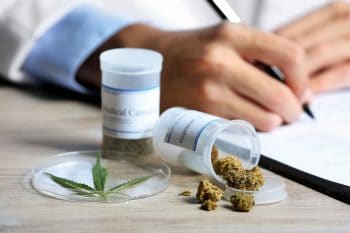New Study Shows that Opioid Overdoses Are Higher in States With Legalized Medical Marijuana
Categories: Awareness , Epidemic , Overdose , Prevention

States with Legalized Medical Marijuana See Rise in Opioid Overdoses
One of the main arguments for the legalization of marijuana across the United States has been the idea that the drug can help combat the Opioid Epidemic. By giving doctors an alternative to the prescription of Opioids for treating chronic pain, many believe that the number of citizens addicted to these medications will fall. This argument has been largely supported by a 2014 study conducted by the University of Pennsylvania that found lower rates of fatal Opioid overdoses in the 13 states that had legalized marijuana for medical purposes in 2010 than in states where marijuana remains illegal. However, a new study performed by the University of Stanford School of Medicine contradicts these claims.
The Stanford study, which revisited the issue after many more states have legalized medical marijuana, found no evidence of a connection between a decrease in Opioid deaths and the availability of medical cannabis. In fact, the research suggests that overdoses in those states have actually increased.
The Stanford Study Methodology
For the new study, the Stanford researchers used the same method employed by the 2014 study to evaluate the connection between legalized medical marijuana and fatal Opioid overdoses. They confirmed the findings from the 2014 study; from 1999 to 2010, the introduction of medical-marijuana laws was in fact associated with a decline in Opioid overdose deaths. However, when the Stanford researchers included states that introduced legalization laws between the years 2010 and 2017, the direction of the relationship reversed. Rather than a reduction in the number of Opioid overdoses, medical marijuana was actually associated with a 23% increase in overdose deaths.
It’s important to note that the 2014 study surveyed the years between 1999 and 2010. By 2010, only 13 states had legalized medical marijuana, and now 47 states permit some form of medicinal pot.
After the 2014 study was released, many medical marijuana proponents and public officials alike interpreted the results to mean that, given access to legalized cannabis, people would turn to it rather than Opioids for pain relief or recreational use.
Lead study author, Dr. Keith Humphreys, said the lower death rates for those states during those years “wasn’t about the cannabis,” but rather “something else about those states.”
Humphreys said the results of the 2014 study may have reflected certain policies and conditions in the states that had legalized medical marijuana early on rather than the drug itself. Those first few states that legalized the drug tended to be wealthier and more politically liberal, with greater access to addiction treatment and to the life-saving overdose reversal drug Naloxone, which can help prevent overdose fatalities. The states that legalized pot early also incarcerate fewer people for drug use, Humphreys added. When people are released from prison in the states with stricter laws, they may try to use the same levels as they did before they were incarcerated. Because these individuals lacked access to the drugs while incarcerated and no longer have a tolerance, they are effected by smaller doses and are therefore at a much greater risk for overdose.
What This Means for Cannabis and Opioid Research
Humphreys maintains that medical marijuana provides many benefits for many people and research into its effectiveness should continue; however, availability of the drug simply doesn’t have much to do with reducing effects of the Opioid Epidemic.
If you think opening a bunch of dispensaries is going to reduce Opioid deaths, you’ll be disappointed. We don’t think cannabis is killing people, but we don’t think it’s saving people [from Opioid addiction].
PhD, Professor of Psychiatry and Behavioral Sciences
Humphreys and fellow lead researcher Chelsea Shover agree that there are many valid reasons to pursue medical cannabis policies, but to reduce Opioid addiction just isn’t one of them. Both scholars urge researchers and public officials to focus on other ways to reduce mortality due to Opioid overdoses rather than cannabis.